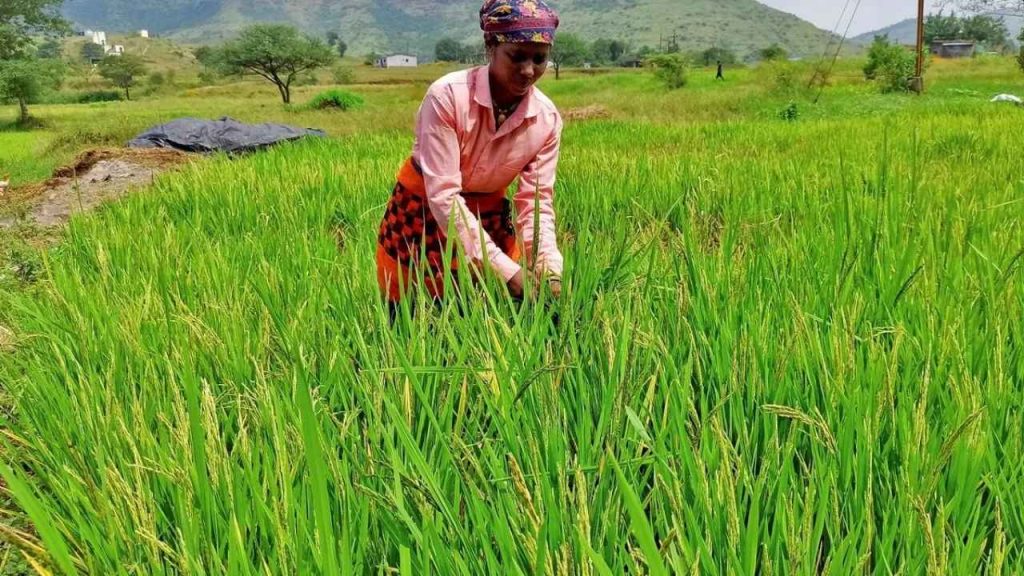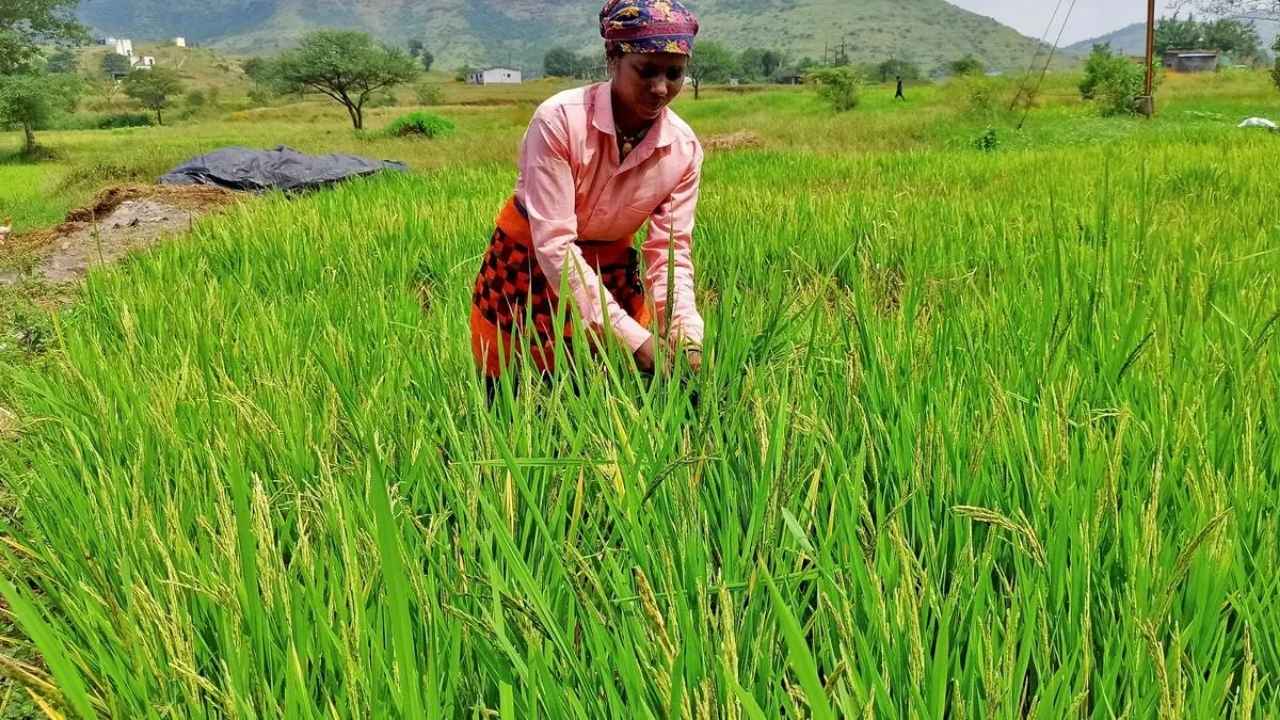Farmers in Bargarh, Odisha, are raising their voices against the new Kharif Paddy Procurement Registration Policy that was introduced to regulate the procurement process for this year’s harvest. With the latest move, the government has made some significant changes that are stirring up discontent in one of India’s most fertile farming regions. This article will explore the Bargarh farmers’ demand for the rollback of the policy, its implications, and what steps can be taken to ensure a smooth and fair procurement process in the future.
A Closer Look at the Kharif Paddy Procurement Policy
The Kharif season in India, which typically runs from June to October, is crucial for the country’s agricultural economy. Among the most significant crops harvested during this season is paddy, a staple in many Indian diets. For years, Bargarh in Odisha has been one of the largest contributors to India’s paddy supply. However, as the 2025 Kharif season approaches, farmers are encountering an obstacle that is threatening the ease and accessibility of the paddy procurement process.
The new procurement registration policy requires farmers who have previously sold paddy to re-register between July 19 and August 20, 2025, to be eligible for government procurement. This mandatory registration involves biometric authentication, including iris scans and fingerprints, along with an OTP-based verification system. In cases where landowners are deceased, farmers must submit a family tree certificate from the revenue inspector to prove their rights over the land.

Farmers have expressed serious concerns over these requirements, citing the added stress of complex procedures, especially for elderly farmers or those who own land jointly. The Sanukta Krushak Sangathan, a prominent farmers’ union in the region, has launched protests demanding the government roll back the new policy. They argue that the technical barriers and bureaucratic hurdles will not only delay the procurement process but also potentially disqualify many genuine farmers from availing themselves of the subsidized procurement rates.
Bargarh Farmers Demand Urgent Rollback of Kharif Paddy Procurement Registration Policy
| Key Points | Details |
|---|---|
| Issue at Hand | Farmers in Bargarh demand the rollback of new procurement registration policy. |
| Policy Changes | Re-registration with biometric scans, OTP verification, and family tree certificates. |
| Farmer Protests | Sanjukta Krushak Sangathan protests against the policy. |
| Concerns | Increased bureaucracy, added costs, and challenges for elderly farmers and joint landowners. |
| Government’s Response | Focus on eliminating impersonation and ensuring accurate identification. |
| Call for Reforms | Farmers advocate for a more permanent registration system rather than annual re-verification. |
For further official information, visit the Odisha Government’s official website or refer to local news sources such as The New Indian Express and Ommcom News.
The Bargarh farmers’ protests against the Kharif paddy procurement registration policy shed light on the challenges of modernizing agricultural processes without considering the realities of rural life. While the government’s focus on transparency and efficiency is commendable, it’s equally important to address the immediate concerns of farmers who rely on timely procurement for their livelihoods.
A balance needs to be struck between technological innovation and practical implementation, ensuring that policies do not become barriers to fair access for every farmer, big or small. If the government listens to the concerns of farmers, it can help create a procurement system that is efficient, inclusive, and fair for all.
Why Are These Changes Causing Trouble?
The new registration process might look like a step toward modernization, but it’s creating significant problems on the ground. In a place like Bargarh, where farming is often a family business passed down through generations, the red tape can feel overwhelming. This new system doesn’t take into account the diverse needs of farmers across the region, some of whom are already facing financial difficulties.
1. Biometric Authentication
The introduction of biometric scans and OTP verification is being hailed as a way to ensure that only the rightful farmer receives the benefits. However, for farmers who may not have easy access to smartphones, computers, or the internet, this is a massive barrier. This creates a digital divide, leaving elderly farmers and small-scale landowners in the lurch. It’s crucial to remember that not everyone in rural India is tech-savvy or has the means to keep up with the digital age.
2. Family Tree Certificates
Another sticking point is the requirement for family tree certificates in cases where the original landowner is deceased. This involves additional paperwork and increased time for verification. For many farmers, this feels like an unnecessary complication. Not to mention, the involvement of a revenue inspector can often delay the process further, creating roadblocks instead of clearing them.
3. Impact on the Farmer’s Livelihood
This new policy directly impacts the livelihood of farmers, particularly those in remote villages who depend on timely procurement to meet their financial needs. Any delays or disqualification from the procurement process can lead to economic distress, leaving farmers with no choice but to sell their paddy at lower prices in the open market. This, in turn, results in increased poverty and unfair trade practices.

What the Government is Saying: A Push for Reforms
The government’s response to these protests has been to ensure transparency and fairness in the procurement process. According to Krushna Chandra Patra, Odisha’s Food and Civil Supplies Minister, the government is focusing on eliminating fraudulent practices and ensuring that only genuine farmers receive their dues. The e-KYC process aims to bring accountability and facilitate direct bank transfers, which Patra believes will make the process more efficient in the long run.
The government claims that by using biometric data, it can prevent impersonation of farmers who might otherwise sell paddy without cultivating it. Additionally, having accurate records of all participating farmers can ensure that payments are processed quickly and fairly.
However, while these measures may work well in the long term, there’s little doubt that they create immediate confusion and stress for farmers. The key question is whether these technological fixes will outweigh the current practical challenges of the farmers involved.
What Can Be Done? A Call for Reforms
Farmers in Bargarh have made it clear that they want a simplified process. Rather than annual re-registration, they are calling for a permanent registration system that can be updated periodically to reflect any changes.
Steps for the Government to Address Farmers’ Concerns:
- Provide better training for farmers to navigate the new digital registration system. This can include local workshops and mobile units to help farmers register.
- Extend the registration deadline to give farmers more time to comply with the process.
- Introduce a permanent registration system where farmers don’t need to go through the re-verification process every year.
- Simplify the documentation required for the procurement, especially in cases of joint ownership and deceased landowners.
By addressing these concerns, the government can not only ease farmers’ frustration but also ensure that the procurement process remains inclusive and efficient.
OMFED-NDDB Agreement to Benefit 15 Lakh Dairy Farmers in Odisha: CM Mohan Charan Majhi
Farmers Flee as Crocodiles Take Over Flooded Crops in Odisha—A Monsoon Nightmare Unfolds
FAQs
1. What is the Kharif paddy procurement policy?
The Kharif paddy procurement policy is a government system to ensure fair procurement of paddy from farmers during the Kharif season. The system regulates the registration of farmers for procurement and aims to eliminate fraudulent activities.
2. Why are Bargarh farmers protesting?
Farmers in Bargarh are protesting because the new procurement registration policy includes complex procedures like biometric verification, OTP authentication, and the requirement for family tree certificates in cases of deceased landowners. They believe these requirements are burdensome and will disqualify genuine farmers.
3. How will this policy affect farmers?
The policy could lead to delays in the procurement process, disqualification of many genuine farmers, and increased financial strain for small-scale and elderly farmers who cannot navigate the digital registration system.
4. What steps are the farmers calling for?
Farmers are asking for a permanent registration system that doesn’t require annual re-verification. They also want the process to be simplified and for the deadline to be extended to accommodate all farmers.





